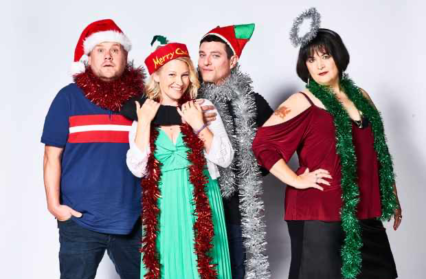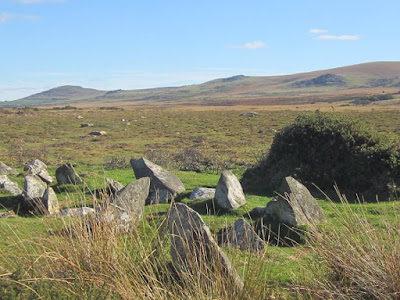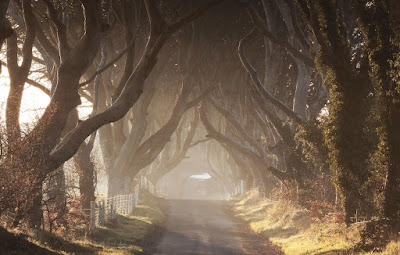Some interesting information is coming out relating to the economic impact of "Game of Thrones" -- filmed mostly, but not exclusively, in Northern Ireland. Now that the series is finished (with a somewhat critical reception from most fans) the originators of the project are working on a pilot for a prequel -- presumably on the basis that you can never have too much of a good thing. However, with 72 episodes shown, one wonders when the "weariness factor" will kick in, and whether there really is a big audience out there wanting more. We shall see,,,,,
Anyway, the impact of the project, which started in Northern Ireland in 2010, has been vast. An estimated 350,000 people visit Northern Ireland each year just because of the series, bringing in c £50 million per year in tourism revenue. Beyond that, there is huge value in the "branding" of the province among the audiences (measured in millions) for the series right across the globe. The calculation is that the project has brought in £251million thus far -- not bad for an initial investment of c £16 million (through support mechanisms, grant aid and other incentives) from Northern Ireland Screen.
And most of those in the tourism business assume that the "GOT" effect will continue far into the future, just as the Lord of the Rings effect is still being felt quite forcefully in New Zealand.
=========================
Game of Thrones is 'game changer' for NI tourism
By Sara Girvin
BBC News NI North-East Reporter
https://www.bbc.co.uk/news/uk-northern-ireland-48343910
Its long-awaited finale has been and gone but Game of Thrones is still big business for Northern Ireland.
It is estimated to have brought £251m into the economy since production began in 2010, according to the region's film agency NI Screen.
Over the same period, the organisation gave £15.95m in production funding to the hit fantasy drama series.
But that was a worthwhile investment, says NI Screen's chief executive Richard Williams.
"It's been a game changer for the screen industry," he said."This is the biggest show of the decade and certainly within industry terms everyone knows that it's being made in Northern Ireland.
"That has revolutionised our standing in the screen industry all around the world."
On what the future holds for filmmaking in Northern Ireland, Mr Williams says "If we can't collectively sell the supply chain that was behind Game of Thrones, the crew, the studio, well then what can we sell?"
Figures from Tourism NI, the region's tourism development body, paint a similarly upbeat picture.
They suggest that 350,000 people come to Northern Ireland every year just for Game of Thrones - that is one in six leisure visitors.
It is estimated they spend £50m each year.
'Driving people to NI’
The HBO production has turned Northern Ireland filming locations into tourist hotspots.
Tour operator Caroline McComb hosts Game of Thrones tours every day of the year with one exception - Christmas Day.
"For us, Game of Thrones has been that big game changer we always hoped we'd get," she says.
"It's the thing driving people to come to Northern Ireland."
She does not believe business will be affected by the end of the show.
"I don't see any reason why the numbers will dwindle."We've only to look at what Lord of the Rings has done for New Zealand to see that there's absolutely no reason why we can't continue with this in Northern Ireland," she said.
Sean McLaughlin took over at the Fullerton Arms in Ballintoy, County Antrim, four years ago.
His restaurant is a refreshment stop for many of the Game of Thrones tours along Northern Ireland's north coast.
"It's gone from one tour bringing in about 18 covers per day to serving approximately 110 to 130 covers per day - just for Game of Thrones fans," he says.
"I think we'll see numbers continue to grow - the lasting legacy of what has been created is phenomenal.”
'Buses never stop’
But the influx of large numbers of tourists to some small villages has caused problems.
Marian Boyle is a resident in Cushendun, County Antrim, and says tourist coaches are disrupting the residents' lives with a "lot of intrusion".
"I'm all for tourism in Northern Ireland but this sort of tourism - herding people in and out - they come to see one thing and that's it," she said.
"For local residents it is frustrating - the constant buses never stop.
"At the weekend when it's busy you can be driving through hundreds of people who just don't see this as a road."
There are also issues at the Dark Hedges outside Armoy, County Antrim.
Just 10 seconds on Game of Thrones was enough to make it a tourist attraction.
Congestion and damage to the trees led to traffic being banned but that is not always obeyed.
More Game of Thrones attractions are in the pipeline and a prequel to the show is being filmed in Northern Ireland.
But tourism bosses admit there is a balance to be struck.
Judith Webb, who is responsible for screen tourism at Tourism NI, says: "Success has meant that we really do need to consider visitor management issues and work is happening to manage those situations."
The show has "transformed Northern Ireland into a leading international screen tourism destination", she adds.
"What's planned will extend the whole life of Game of Thrones - there is a lot of investment moving forward and we're hugely positive about the future.”
=====================


















































